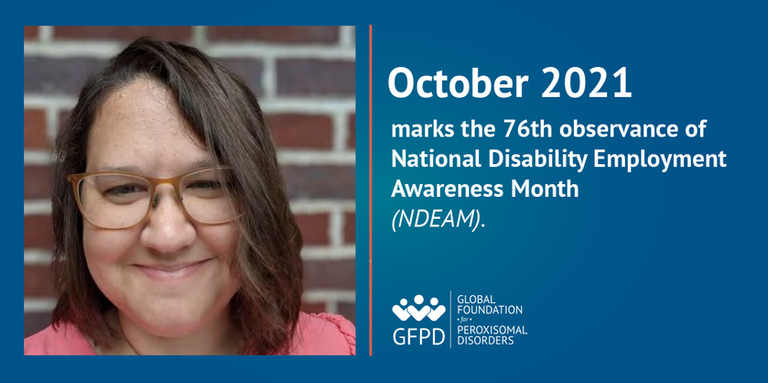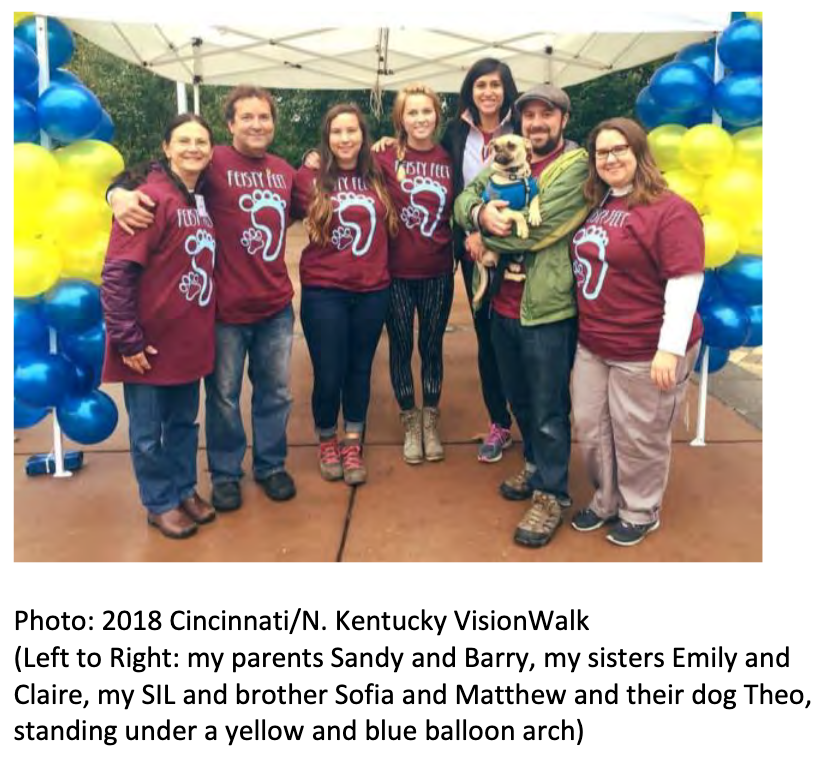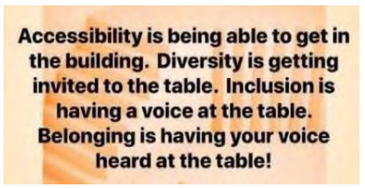This year, NDEAM’s theme is “America’s Recovery: Powered by Inclusion,” focusing on employment/economic opportunity, as well as accommodations and support.

Recognized every October, NDEAM is a fitting time to learn about disability employment issues and “The many and varied contributions of America’s workers with disabilities.” This year, NDEAM’s theme is “America’s Recovery: Powered by Inclusion,” focusing on employment/economic opportunity but about accommodations and support. U.S. Department of Labor Press Release
So, why do I care so much about this? Well, here is my story . . . By the age of one my parents and doctors realized that I am severely-to-profoundly deaf. The doctors told my parents to choose one of two communication paths – speech or sign language – as I would not be able to do both. My parents chose the speech path, as they felt I would integrate better into the world not made for hearing impaired people. Doctors also said I may not graduate high school and to not expect me to go to college. My parents refused to accept hearing impairment as a limitation. My parents supported me and pushed me and the doctors, as well as the schools and teachers to fulfill the potential they saw in me.
By the age of nine, vision impairment entered the picture. I was then diagnosed with Usher Syndrome. A disease that affects both hearing and vision. Still, my parents refused to accept vision impairment as a limitation. They supported me and pushed me to help me reach the potential they saw. I was mainstreamed for 2nd grade and was the first hearing impaired student to go through my school system. My family has always rallied around me and given me the support I need and empowered me to be who I am. We are one of the five founding families of the Foundation Fighting Blindness (FFB) VisionWalk; which raises money for vision disease research. This year was FFB’s 50th and Cincinnati/Northern Kentucky’s 16th anniversary of the VisionWalk.
Not only did I finish high school, but I got my Bachelor’s degree from Xavier University, as well as my Master’s degree from Eastern Kentucky University. At the age of 36, to qualify for an Usher Syndrome clinical trial, I went through genetic testing funded by FFB. I was correctly diagnosed with Heimler Syndrome, a Peroxisomal disease that affects my hearing/vision/teeth/some organs/glands and not Usher Syndrome.
I would not be where I am without my parents. I grew up treating my “disabilities” as a challenge, a learning/teaching tool and not an obstacle. However, it is important to remember that not all disabilities are visible, nor are disabilities a measure of an individual’s capabilities.

While I cannot control what others think, I can be an advocate for myself and others by educating those around me to the fact that we all deserve accessibility, inclusion, and belonging regardless of what we are dealing with disability-wise. NDEAM says, we are empowered by inclusion! I will admit, for years growing up and when first entering the working world, I did my best to hide my disabilities for fear others would think I was less than capable. Now I embrace them as they make me who I am, allow me to bring another point of view to the table and prove to the world that yes, I have “disabilities,” but I am not disabled.
We can work together by being thoughtful to all people and circumstances to make the world healthier, stronger and everyday life more beautiful. This attitude and commitment will result in a safer world for all. I think Helen Keller said it best. “Alone we can do so little, together we can do so much.”

Inclusion is a KEY attribute to success. I am very grateful that I found GFPD. We each bring something valuable to the table and can support one another.
Thank you for reading my story.
Angela
